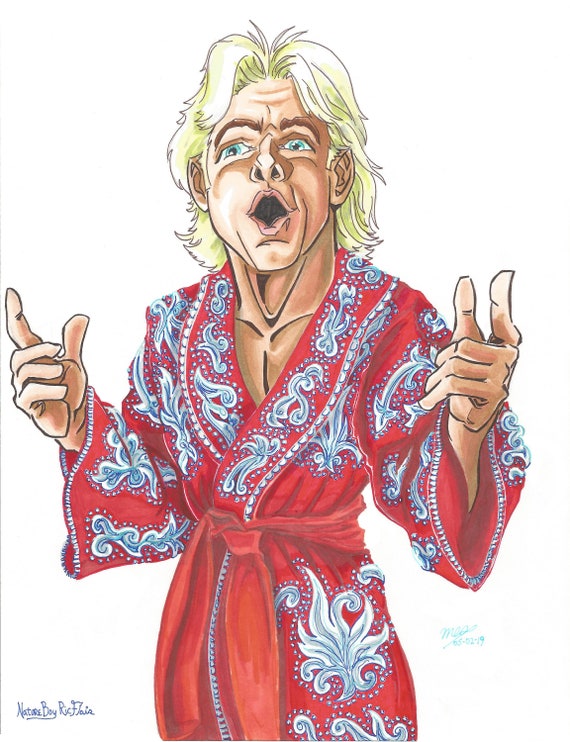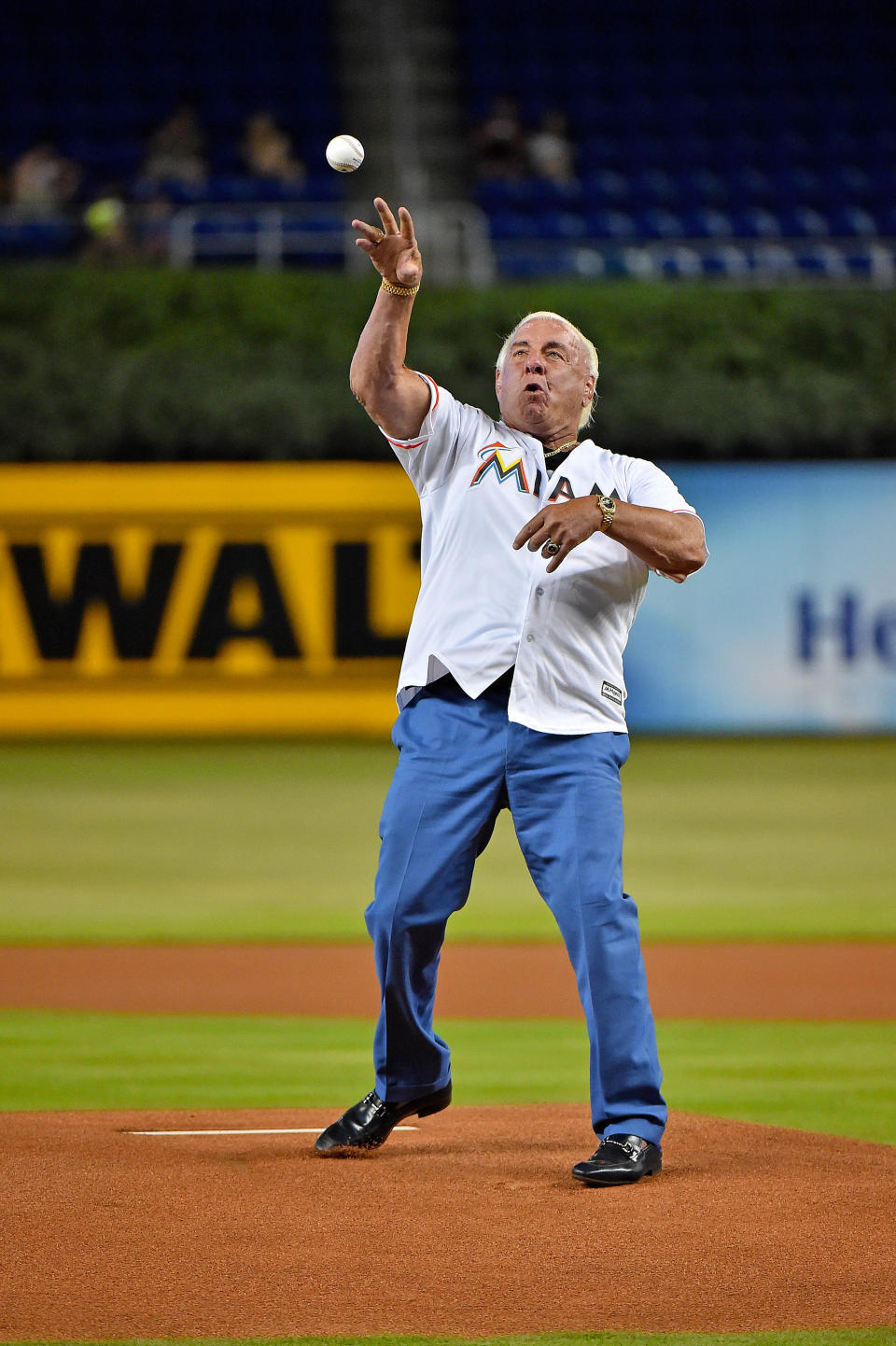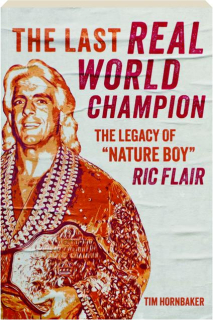Ric Flair, known as “The Nature Boy,” is a name that resonates deeply within the world of professional wrestling. His contributions to the industry are unparalleled, and his influence can still be felt today. With a career spanning over four decades, Flair’s style, persona, and in-ring ability have transformed the landscape of wrestling. This article delves into Flair’s remarkable legacy, examining his impact on wrestling culture, the evolution of character work, and the art of storytelling in the ring.
The Early Years: Crafting a Legend
Ric Flair was born Richard Morgan Fliehr on February 25, 1949, in Memphis, Tennessee. His journey into the wrestling world began in the late 1960s, and he quickly developed a unique persona that would become iconic. Flair’s early training under the likes of Verne Gagne and his time in the American Wrestling Association (AWA) set the stage for his future success.
- Training and Influences: Flair’s early matches were influenced by the traditional wrestling styles of the time, but he quickly adapted to create a more flamboyant character.
- First National Exposure: Flair gained national attention in the 1970s as a part of the National Wrestling Alliance (NWA), where he began to develop his now-famous persona.
The Nature Boy: A Character Like No Other
The character of Ric Flair is among the most recognizable in professional wrestling history. Flair embodied the persona of a wealthy, flamboyant, and brash figure, often accompanied by luxurious robes, flashy jewelry, and a signature catchphrase: “Woo!” His character was not just about in-ring performance; it was a combination of charisma, lifestyle, and storytelling.
- Style and Presentation: Flair’s extravagant style included tailored suits and flashy robes, setting a standard for wrestlers to present larger-than-life characters.
- Catchphrases and Promos: Flair’s ability to deliver engaging promos and memorable catchphrases helped elevate his status, making him a household name.
Championships and Achievements
Ric Flair’s in-ring prowess and ability to connect with the audience led him to an impressive career filled with championships and accolades. He is recognized as one of the greatest professional wrestlers of all time, holding numerous titles throughout his career.
- NWA World Heavyweight Champion: Flair is a 10-time champion, a record that stands as a testament to his dominance in the ring.
- WWF/WWE Champion: He won the WWF Championship twice, including a victory at the 1992 Royal Rumble, which solidified his legacy.
- WCW Champion: Flair also held the WCW World Heavyweight Championship multiple times, further cementing his status in the wrestling world.
The Art of Storytelling
One of Ric Flair’s significant contributions to professional wrestling is his mastery of storytelling. Flair understood the importance of building narratives that captivated the audience and made matches meaningful. His feuds, particularly with other legends such as Dusty Rhodes, Ricky Steamboat, and Hulk Hogan, showcased his ability to create compelling storylines.
- Feuds that Defined Eras: Flair’s rivalries often encapsulated entire eras in wrestling, making them memorable for fans and elevating the stakes for the matches.
- Character Development: Flair’s ability to evolve his character over time kept audiences engaged and interested, showcasing his versatility as a performer.
Influence on Future Generations
Ric Flair’s impact goes beyond his own achievements; he has also influenced a generation of wrestlers who followed in his footsteps. Many current and former wrestlers cite Flair as a significant influence on their careers.
- Mentorship: Flair has played a mentor role for numerous wrestlers, offering guidance on character development and storytelling.
- Signature Moves: The “Flair Flip,” the “Figure Four Leglock,” and his distinctive selling style have become staples in wrestling, emulated by many.
- Evolution of Promos: Flair’s ability to cut passionate promos has inspired wrestlers like The Rock, Shawn Michaels, and Seth Rollins.
Flair’s Cultural Impact

Beyond the wrestling ring, Ric Flair’s influence extends into popular culture. His persona has been referenced in various forms of media, including television shows, movies, and music.
- Television Appearances: Flair has made guest appearances on shows such as “The Simpsons” and “The Goldbergs,” showcasing his status as a cultural icon.
- Music and Fashion: His catchphrases and flamboyant style have been referenced in songs by artists like Lil Wayne and Cardi B, bridging the gap between wrestling and mainstream culture.
Challenges and Resilience
Ric Flair’s life has not been without challenges. He has faced personal struggles, including health issues and setbacks in his personal life. However, his resilience and determination to return to the ring have endeared him to fans even more.
- Health Scares: Flair has undergone multiple health crises, including a life-threatening surgery in 2017, yet he remains a beloved figure in wrestling.
- Return to the Ring: Flair’s unexpected returns to the ring, even in his 70s, demonstrate his undying passion for wrestling and his connection with fans.
Conclusion: The Enduring Legacy of The Nature Boy

Ric Flair’s impact on professional wrestling is immeasurable. From his extravagant persona to his storytelling ability, Flair has left an indelible mark on the industry. His journey has inspired countless wrestlers and entertained millions of fans worldwide. As we reflect on the legacy of The Nature Boy, it’s clear that Ric Flair is more than just a wrestler; he is a cultural icon whose influence will continue to shape the world of professional wrestling for generations to come.
In summary, Ric Flair’s legacy is characterized by:
- His groundbreaking character work that set new standards in wrestling.
- A career filled with championships and unforgettable moments.
- His mastery of storytelling and character development.
- His profound influence on future generations of wrestlers.
- His ability to transcend wrestling and become a cultural phenomenon.
As the wrestling world moves forward, Ric Flair’s contributions will remain a vital part of its history, reminding us that the essence of wrestling is not only about athleticism but also about charisma, storytelling, and the connection between performers and their audience.




